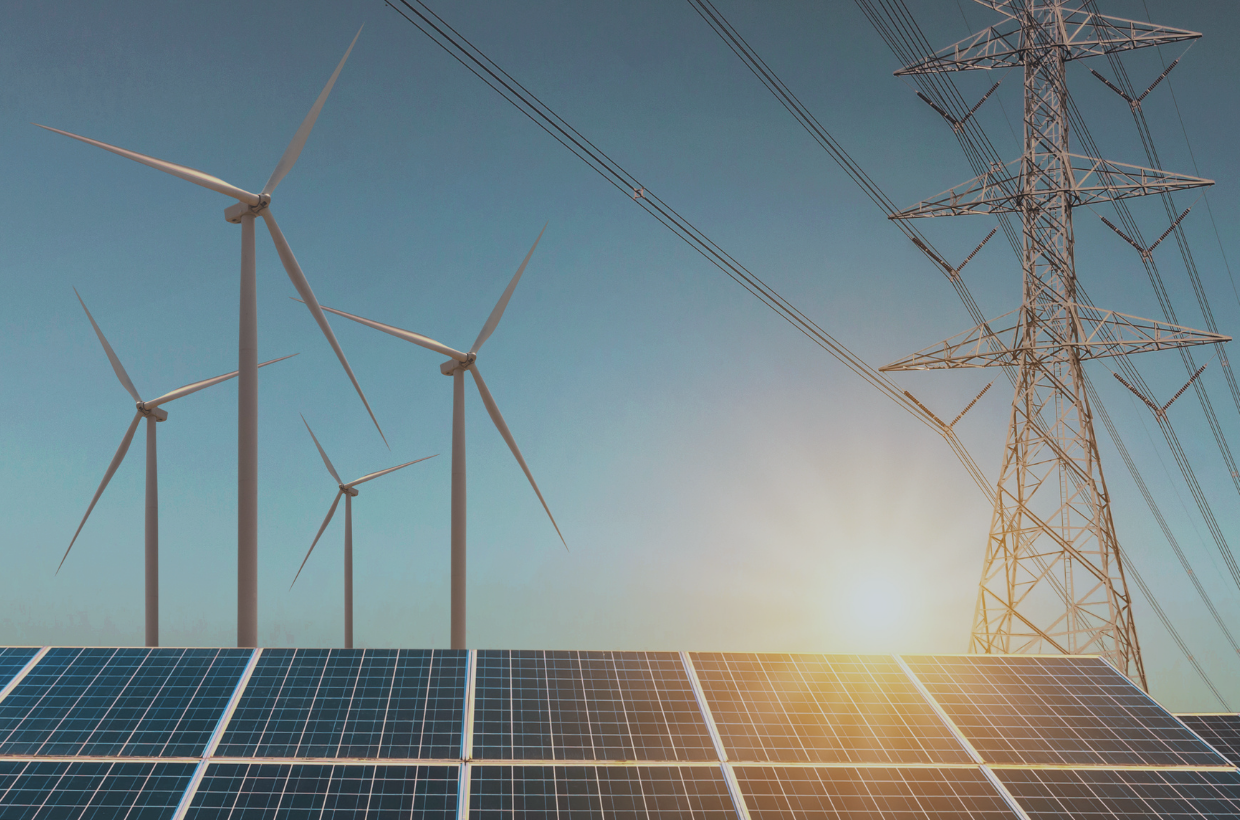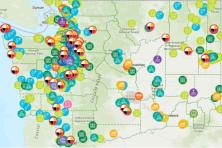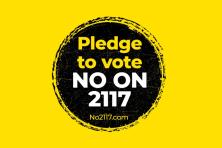Have you ever been a part of trying to start a wave in a stadium?
Standing up with other fans, cheering and tossing your arms up and down—it can be a bit of a bummer when others at first don’t join. Yet when sections of the stadium start catching on with those around you, it can be wicked fun to see and feel how it spreads and grows.
The Pacific Northwest has started a wave: we’re the first region to say yes to 100% clean electricity.
Even if you missed our recent Climate Leaders Live webinar telling more of the story, you don’t have to miss out hearing about what we’ve done in the Pacific Northwest to accelerate the transition to equitable clean energy solutions - and what comes next.
Check it out now:
At the very end of June, the Oregon Legislature passed one of the strongest and most equitable 100% clean grid laws in the country. Oregon now joins Washington State who two years ago passed the Clean Energy Transformation Act, a policy that is one of the strongest in the country for transitioning the grid to be carbon-free while prioritizing environmental justice and good paying jobs.
We decided to start this story where it just ended most recently. Indi Namkoong, Coalition Manager, 350PDX and steering committee member of Oregon’s Clean Energy Opportunity Campaign laid out the story of how the groups formed the coalition centering on justice and equity. The groups came together with shared principles and values, leading with voices from Oregon’s environmental justice organizations and frontline communities and supported by groups including Climate Solutions and many others. The coalition achieved not just a 100% clean grid now faster than anywhere else in the country, but also several other complementary wins to invest in communities most impacted by the legacy of fossil fuels.
“This story can start far back, frontline communities have been organizing for legislation for this and changes like this for a really long time,” Indi shared to kick things off. “We pulled together a really broad coalition of organizations and leaders all over of the state based on the idea that those closest to the problem should be leading on the solutions.”
You can tune in to hear Indi and more of the story of how Oregon’s frontline communities led the campaign for energy justice starting at 2:55.
Oregon is the most recent swell in the growing clean electricity wave, but we then turned back to look at where some of this started in Washington State. Matthew Hepner, the Executive Director of the Certified Electrical Workers of Washington, is a critical leader and ally in advancing policies to scale clean energy jobs and emphasized that the Clean Energy Transformation Act (CETA) passed in 2019 is now a model around the country for creating more clean energy jobs.
“It really started with jobs... having an avenue to feature family and meet those bread and butter issues at home is important,” Matthew shared. “I’m happy to report that our international building trades at the federal level is copying what CETA did and it’s groundbreaking what we were able to do with labor standards and environmental policy... it’s really going to change how we move policy forward in the United States.”
You can hear the story of success in Washington State after a fourteen year drought of meaningful climate action starting at 17:28.
The Pacific Northwest is helping create more momentum to accelerate the transition to 100% clean electricity (most recently Illinois!). To wrap up our conversation, Quentin Scott, Federal Campaign Coordinator, Chesapeake Climate Action Network, named the feeling we can all have when thinking about the prospect of federal action:
“If you listen to any cable news, it does seem very dire...but there is some good news.”
But he next walked us through the math of how the federal government can act boldly now and do their part to catch up with the climate math.
Go straight to Quentin’s rundown starting at 29:40 about what’s ahead for Congress soon with the budget reconciliation and how we could pass a federal Clean Electricity Payment Program and get our federal government to be bold on climate action.
Hearing from these leaders in the clean energy transition wrapped with a needed reminder that there is a lot more ahead--in the Beltway, in our state capitols and every level of government--if we are going to meet the challenge. Having 100% clean electricity is the essential foundation to build a strong and resilient clean energy economy. It’s incredible our region did it. Now we need to get to more action while we still have time!





